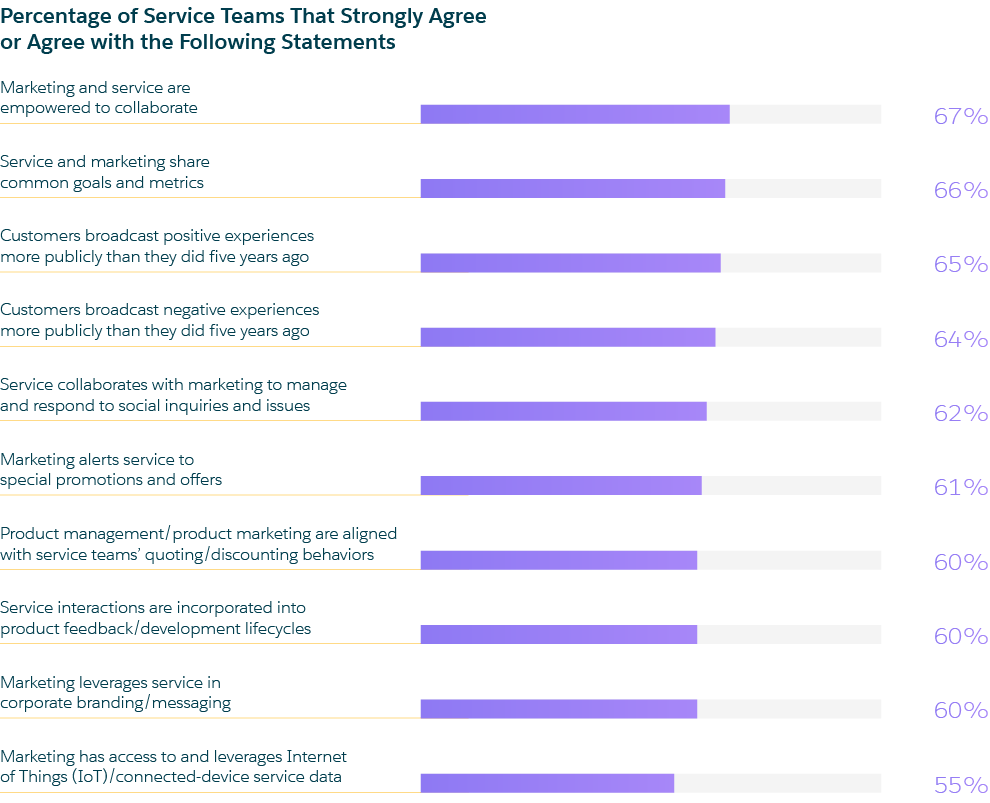
Get your FREE 30-day trial.
Please complete all fields.
It could be argued that customer satisfaction, historically, is the domain of customer service teams. But in 2016, marketers said that customer satisfaction was their number one success metric (this from the latest State of Marketing report). Similarly, the second most pressing item on marketers’ agenda last year was higher levels of customer engagement.
Marketing KPIs seem to be infringing on customer service turf — but, as it turns out, this overlap in departmental focus goes both ways.
In the recent “Second Annual State of Service” report, 81% of customer service teams say that service has the largest impact on how customers perceive their brand. At first glance, it may seem that marketing and customer service are entrenched in a face-off over who owns what. However, a closer look at this research shows a much rosier picture.
A large majority of service teams say they’re working together with marketing to meet customer needs; 67% of customer service teams say they’re empowered to collaborate with marketing. Another 66% of service teams say they share common goals and metrics with their marketing departments.

Why are service and marketing working to more closely align? In a word: social. The research shows that nearly two-thirds of service teams agree that customers broadcast their experiences — both negative and positive — more publicly today than they did five years ago. Keeping customers happy in the world of social media was a business function that didn’t exist just two decades ago. Now, Facebook alone has more than 1 billion users every day. Sixty-two percent of service teams say they collaborate with marketing to manage and respond to social inquiries and issues.
The collaboration between marketing and service is a move in the right direction, especially since 79% of Millennial consumers expect companies to provide a consistent experience wherever they engage (e.g., website, social media, mobile, in person). In addition to consistency, consumers demand speed in social. Sixty-six percent of consumers expect a response from a company on social media immediately or within one hour. The most patient consumers — those who said they’d be willing to wait more than a day for a company to reply — only constitute eight percent.
For more research insights, check out the “2016 State of Marketing,” “Second Annual State of Service,” and “State of the Connected Customer” reports.